Author: Martin Trust Center
by Ben Soltoff, Entrepreneur in Residence
It’s hard to get further away from Cambridge than Australia. You’d probably have to head into space (and Elon Musk is indisposed at the moment). Australia is almost exactly at the opposite end of the Earth. If you were to dig down directly below MIT, you’d eventually end up in the ocean not too far from the country’s western coast. This fall, I made the long trip to that distant region of the world, though I traveled by plane rather than tunnel (less digging required, plus a better movie selection).
The main purpose of my trip was to connect with our friends at the Queensland University of Technology (QUT) in Brisbane. In 2019, QUT began a multi-year collaboration with MIT, and the Martin Trust Center is a driving force behind this relationship. We’ve been working with QUT Entrepreneurship to learn from one another and support students at both universities pursuing entrepreneurial endeavors.
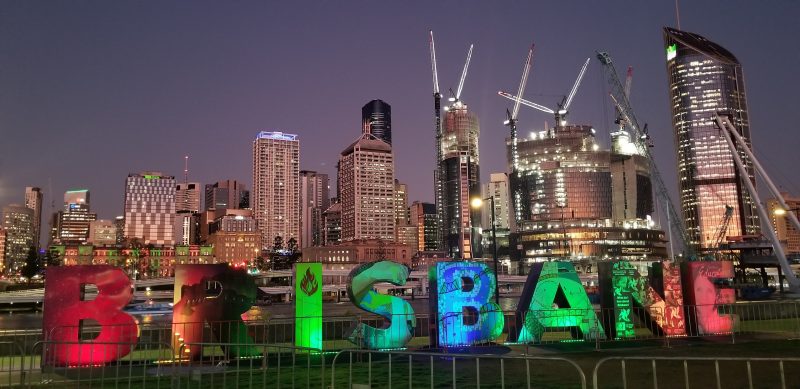
QUT-MIT Climate Tech Study Trip
During the first week of the trip, I brought along four Sloan MBAs who were collaborating with five MBA counterparts from QUT on a joint independent study. Their objective was to determine the feasibility and market potential of a chosen climate technology in the context of the 2032 Brisbane Olympic Games.
If it’s news to you that Brisbane is hosting the Olympics in 2032, you’re not alone! I wasn’t aware until we started planning the project. A decade may seem a long way off, but it’s a huge undertaking. The Olympics requires a massive amount of infrastructure to support hundreds of events, thousands of athletes, and millions of spectators. Brisbane will be the smallest city ever to host the Summer Olympics, so it will be a particularly heavy lift. Fortunately, the events will be spread across the state of Queensland, lightening the load.
Another challenge is that Brisbane has committed to making 2032 the first-ever climate positive Olympic and Paralympic Games, meaning the event will be responsible for removing more greenhouse gas emissions than it emits. That’s a noble goal on paper, but it’s incredibly difficult to achieve in practice.
That’s where the MIT and QUT students came in. Over the course of a week, they strove to understand what it might take for the Olympics to become climate positive. They spoke with a variety of government officials, entrepreneurs, and researchers, and they visited startups and project sites to see climate tech in action. The week was a whirlwind, and the students have continued working together to draft some recommendations by the end of the semester.
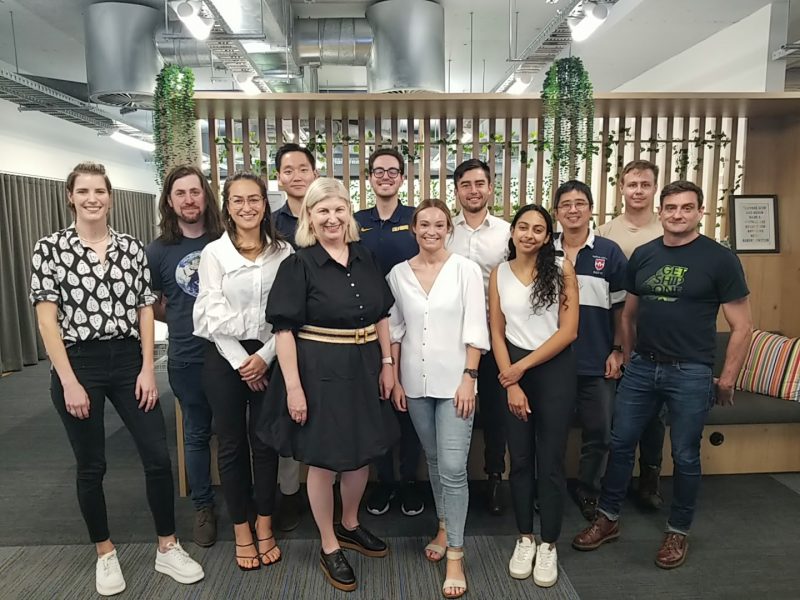
Bronwyn Harch, Chief Scientist for the Government of Queensland, spoke to the students about pathways from innovation to commercialization.
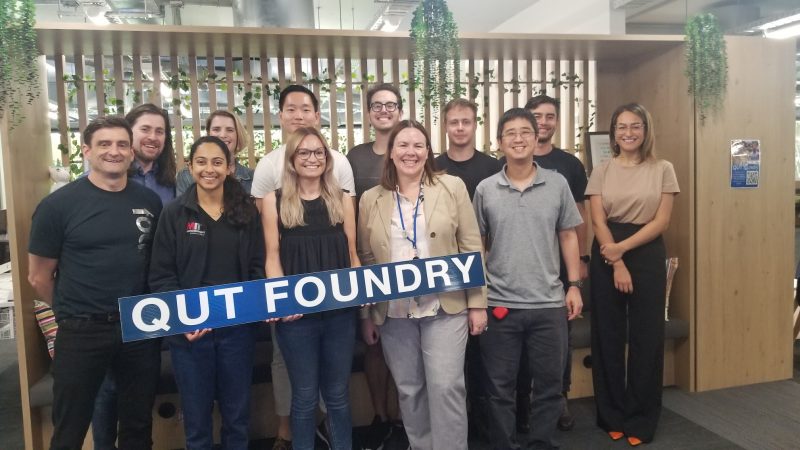
Belinda Murray, Executive Director of Strategic Engagement and Communication for the Brisbane 2032 Taskforce, spoke to the students about the challenges and opportunities that come along with organizing a massive global event. The students also heard from Kimberly Canvass, Director of Climate Positive Brisbane 2032, who explained the critical role of environmental sustainability in the planning process.
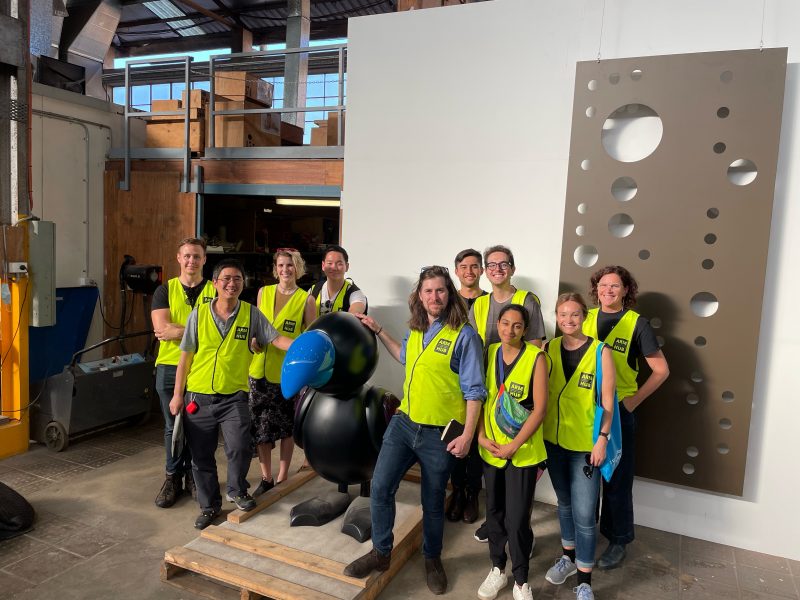
Climate technology often takes the form of physical hardware that can reduce or remove emissions. The ARM Hub is one of many sites that the students visited to learn firsthand about the complexities of building and testing physical technologies. ARM stands for “Advanced Robotics for Manufacturing,” and the ARM Hub is a place where scientists and engineers bring together robotics, artificial intelligence, and design to make manufacturing processes smarter and more efficient.
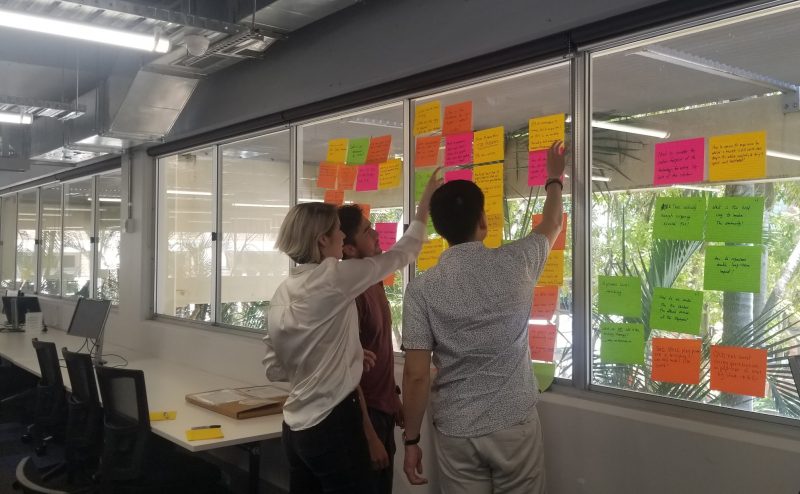
Two essential ingredients for collaborative innovation: inquisitive minds and giant Post-It Notes.
Something Fest
On October 27, I had the honor of giving a headliner talk at Something Digital, a conference bringing together digital innovators in Brisbane and beyond. It was part of Something Fest, a week-long innovation festival with events taking place all over the city. Brisbane may not be globally recognized as a hub for entrepreneurship and technology, but just like with the Olympics, it’s a city full of surprises. There’s an active startup scene and vibrant innovation ecosystem, in which QUT plays a large role.
At Something Digital, I kicked off the “Net Zero” block, where I talked to the audience about the role of startups and technology in reaching net zero targets. Given that the audience was largely focused on software, I emphasized that digital technologies have a role reaching net zero, but ultimately the problem requires solutions in the physical world. Right now, we’re putting too many molecules of carbon dioxide and other greenhouse gases into the atmosphere, and we need to emit as little as possible, while removing as much as possible of what’s already up there. Climate change is a problem of atoms, not bits.
I also reassured them that despite the challenges, it’s okay to be optimistic. We already have many of the solutions we need, and we’re making progress (but it needs to happen much, much faster).
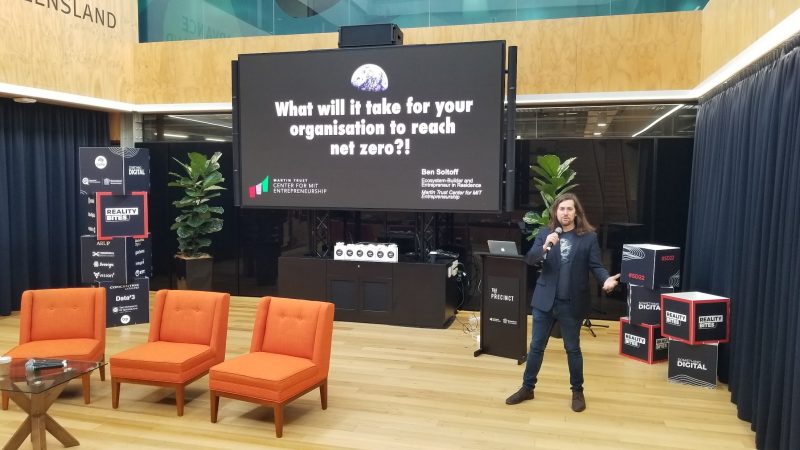
The QUT Foundry
I spent my second week in Brisbane embedded at the Foundry, which is QUT’s equivalent of the Martin Trust Center. It’s a community space where student entrepreneurs gather to learn new skills and collaborate on their ventures. I got to know the QUT Entrepreneurship team, and we discussed some of the commonalities in our work, as well as some of the differences. We both push our students to apply what they’re learning in courses to the real-world concerns of a paying customer, and we give them the space and tools to “Get ‘Ship Done” (a motto that we may or may not have borrowed from them). However, Australian entrepreneurs face unique obstacles such as smaller markets, scarcer capital, and higher consequences of failure.
At the end of the week, I gave an info session on MIT Fuse, because we’ll have three QUT teams joining the program in person for 2023! The selected teams are now eagerly preparing for their trip. They’ll spend two-and-a-half weeks focused intently on their ventures, working alongside their MIT counterparts.
I also served as a guest commentator during one of the Foundry’s monthly pitch nights, providing feedback to entrepreneurs who are grappling with how to turn their ideas into reality. The entrepreneurial spirit is strong in Brisbane!
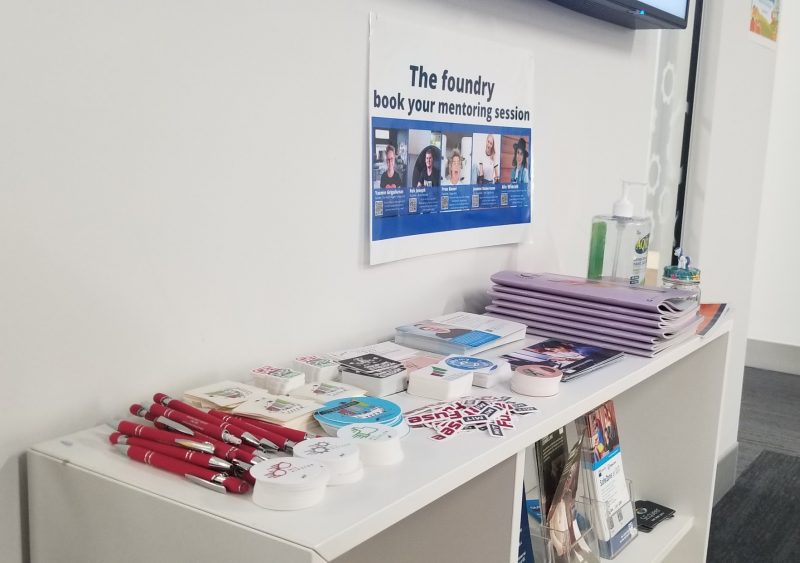
A Bonus Stop in New Zealand
Before heading back to the states, I made one more stop at the University of Auckland, where I was invited to give a talk about the state of the climate tech landscape. I addressed an engaged audience of students, staff, and faculty, as well as some local climate tech founders and investors. The university has just launched a new center called Ngā Ara Whetū: Centre for Climate, Biodiversity & Society, which will focus on developing ecological solutions rooted in cross-disciplinary research and indigenous knowledge. The Kiwis gave me a warm welcome, and it was fascinating to talk to student innovators about their projects.
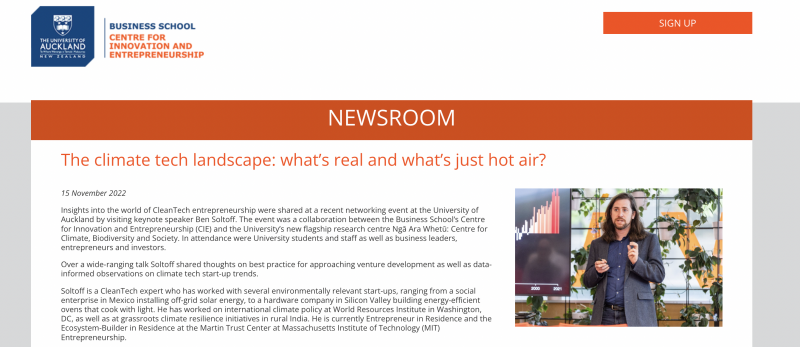
Final thoughts
Though physically distant, our Aussie and Kiwi colleagues are close in spirit when comes to teaching the craft of entrepreneurship and using that craft to build and scale climate solutions. As the Martin Trust Center grows its work in these areas, I look forward to further collaborations with our friends on the other side of the earth!


Follow